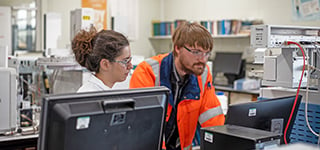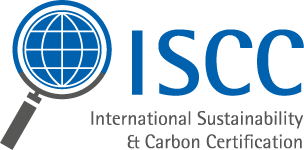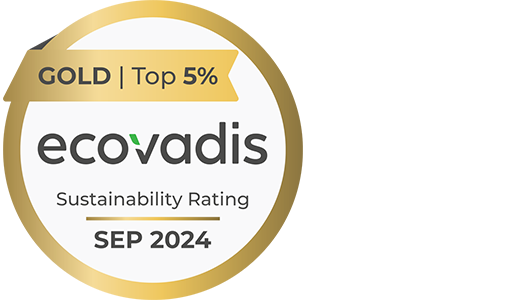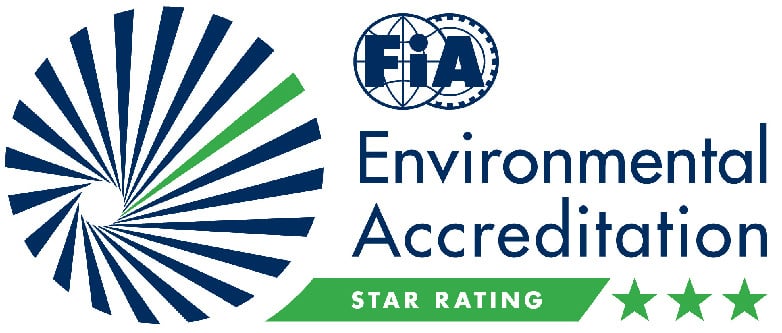- CheManager Interview with Henrik Krüpper, CEO HCS Group
- The interview has been published on CHEManager International on Feb 12 2020:
www.chemanager-online.com/en/topics/economy-business/petrol-specialty-products
From petrol to specialty products
HCS Group - the successful adaptability of a mid-sized specialty chemicals company
HCS Group was formed in 2013 through the merger of the companies Haltermann and Petrochem Carless, but its roots go back to 1859 (see info box). The supplier of high-quality hydrocarbon products with headquarters in Frankfurt am Main, Germany, is part of the private equity firm H.I.G. Capital Europe and generates annual sales of approximately EUR 470 million with around 450 employees working at seven production sites in Europe and North America. Since April 1, 2019, Henrik Krüpper has served as CEO of HCS Group. Michael Reubold talked to him about tradition, key success factors to survive in the markets and plans for the development of the company.
CHEManager: Mr. Krüpper, with a company whose roots go back more than 160 years, the question arises as to how much of the tradition-rich history can still be felt today.
Henrik Krüpper: Even today, much of the pioneering and entrepreneurial spirit of the former founders Johann Haltermann and Eugene Carless is still very much in evidence. After all, Carless coined the term "petrol" at the time and made a significant contribution to developing the fuel for the burgeoning automotive industry in Great Britain.
How is this spirit - today you would say "mindset" - reflected in the company's philosophy?
Krüpper: We are always close to our customers and look at what’s coming up next and what new ideas we can produce in order to then pave the way for special applications and develop them continuously. Even today, this spirit is the reason why we are able to successfully compete in the market as a rather small company. After all, we are in very lively competition with much larger companies such as ExxonMobil, Shell, Mol or Total. Nevertheless, we have always managed to adapt and respond successfully to new market and customer demands. I believe that we succeeded in this because we have been able to retain the entrepreneurial spirit that has characterised our company from the very start. If we were not so flexible and adaptable, we would no longer exist. We are very proud of this tradition and of the shared values that make us strong and also give us a strong identity.
Even though we repositioned our brands and our recent history is marked by investments, acquisitions and international growth, we are at the same time also very strongly rooted in these tradtional values that distinguish us - customer focus, commitment, quality, reliability, standing by our name to deliver what we promise to the market. These values are very well received by our customers, especially in the current environment.
How do you manage to hand down such a tradition and philosophy from one generation to the next and to new employees who join from other companies?
Krüpper: Passing on this knowledge is a key challenge for us. We benefit from the fact that we have many employees who have been with us for a long time. This is surely also due to the reason that, as a medium-sized company with flat hierarchies, we are nevertheless able to develop employees within our own organisation. There are some really great examples. We are happy to prepare promising young talents with this personality and ambition for larger tasks and thereby ensure that they stay with us. Somehow, it seems to be something special for them to be working for Haltermann Carless. With new colleagues we experience time and again that they take inspiration from this spirit and then embody it and fill it with life.
It’s been a long way from the first product "Petrol", which became a world-famous brand name and generic term, to today's range of high-quality hydrocarbon products. Would you mind sharing with us some development steps of your product portfolio?
Krüpper: Basically, we have been a petrochemical company focused on specialties in both our main legacy entities, Carless in UK and Haltermann in Germany. Using a large variety of processes in the respective product generation, those components which the market demanded at the time were isolated from the petrochemical raw materials. This is the common thread running through our product portfolio.
We started by developing fuels for combustion engines in the automotive industry. Later, other applications followed, such as hydrocarbon-based solvents for the printing ink industry. Then the pharmaceutical industry developed and needed high-purity solvents for extraction or crystallization processes and the agrochemical industry required increasingly heavy aromatic solvents.
Throughout our company's history, the technological setup has always been developed organically - in other words, in a sustainable way. We have always relied on our core competencies and developed them to serve new industry segments and markets. And we did so quite successfully.
Today, you serve attractive niche applications in sectors such as Energy, Mobility, Industry and Life Science. What are the focal points?
Krüpper: Nowadays, we develop and formulate special fuels for testing or reference purposes or for racing, specialty products and solvents based on aliphatic or aromatic hydrocarbons for the pharmaceutical, cosmetics, electronics or printing ink industries, and pentanes as blowing agents for insulating materials and other applications. We offer products for energy generation and manage the reconditioning of transformer oils.
How much do these four business units contribute to total sales?
Krüpper: In terms of sales volume, the four business units Energy, Mobility, Industry and Life Science differ greatly, which is why we measure their contribution margins, and in this respect all four business units are about equally strong.
Where do you see opportunities for growth, but also challenges?
Krüpper: As already mentioned, our product portfolio has evolved organically. In the past, we used to market benzene as a fuel – something that is out of the question today!
Sustainability is an omnipresent topic. After all, the current discussion about CO2 taxation is particularly concerned with the areas of transport and heating. The topic of bio-based or sustainable technologies is an important driver in many areas, especially in the fuel sector, where we see opportunities for fuels containing bio-based, CO2-neutral blending components. Electromobility is certainly a challenge, but the question is how quickly this will really pick up. Right now, we are receiving many enquiries from car manufacturers, for example, to formulate special first-fill fuels that burn without forming many residues and contain up to 25% of a CO2-neutral or bio-component. Demand for fuels with bio-components is also on the rise for small combustion engines such as chain saws.
All these are brand-new requirements. We already began these developments ten years ago and have examined promising technologies, but now the market has finally reached the point where it will accept a certain surcharge to compensate for the currently still higher production costs for sustainable solutions.
In the Energy business unit, we supply products for oil and gas exploration, production and extraction, inter alia. This presents us with strategic challenges in the medium term. However, in the same business unit we have Electrical Oil Services, where we offer transformer oils and their reconditioning as a sustainable and cost-effective alternative to filling with new oil. This means that we are faced with strategic challenges, but also with strategic opportunities, in each individual business area.
We produce heavy aromatics, which are indispensable as solvents for highly complex agrochemical applications to ensure storage stability, for example for applications where several active ingredients have to be brought into solution in a stable manner in order to be later applied to plants as an aqueous solution. In the field of agrochemicals, we see South America and Asia in particular as growth markets, as these regions are developing massively in the direction of higher agricultural productivity, leading to increasing demands on the products.
Our pentanes as blowing agents for insulating materials are a global business nowadays. We see great opportunities in this area due to the focus on energy conservation and consider the United States in particular to be a growth market. Here, too, it was essential to identify at an early stage what technical demands the transition from ozone-depleting CFCs to hydrocarbons would place on the blowing agents in the various applications, so that we could meet these demands in close cooperation with our customers and partners, such as a polyurethane systems house.
HCS Group purchases all raw materials, both the fossil and also the increasingly important bio-based ones. Is this lack of backward integration a disadvantage?
Krüpper: If we look at all aspects, as a medium-sized company among all those big players, we consider this lack of backward integration to be rather an advantage. It is true that we have to source our raw materials on the free market, which initially leads to costs on the purchasing side. At the same time, however, external procurement gives us the great freedom to select raw materials from which we can extract the best product qualities for us. We have also built up a strong network of suppliers over the years. This means that we are not dependent on a single supplier in the market but can guarantee a continuous supply of important raw materials.
We also believe that we are well positioned in the increasingly important field of bio-based raw materials. For some years now, we have been maintaining close partnerships with companies such as Neste and Gevo. We have concluded a long-term purchase agreement with Gevo for bio-based isooctane and other isoparaffins, which we use in several applications ranging from high-purity solvents to high-quality specialty fuels. This is an important step for us to further develop our CO2-optimised solutions and bring them to the market. We are also observing a large number of interesting new suppliers with promising technologies. They appreciate our market access and our deep understanding of the applications.
What is your growth strategy for HCS Group? Will you continue to explore acquisition opportunities?
Krüpper: We are a mid-sized company on a growth path. Acquisitions have always been an important element of our corporate strategy, in the same way as organic growth. This is also where the good and trustful cooperation with our financial investor comes into play. H.I.G. has supported us in many ways in recent years, opening up growth potential in various areas and segments.
Since HCS Group was founded in 2013, we have made acquisitions almost every year and have also grown organically by expanding our business activities. It all started in 2014 with the acquisition of ETS Racing Fuels which operates sites in France and the USA, followed by the acquisition of Electrical Oil Services (EOS) in the UK in 2015 and the takeover of a small chemical company based in Manvel, USA, to advance our business in the USA. In 2017, we established Haltermann Carless Japan Godo Kaisha, based in Yokohama, to develop the Japanese and Asian markets. And finally, in 2018, we made two more acquisitions for our EOS business in order to expand its business model, which had so far been highly successful in the UK, also to Europe. In 2019, we opened our new US headquarters in Troy, Michigan, which brings us very close to the heart of the American automotive industry in Detroit. At the same time, we have made continuous investments in the expansion of our production sites to meet growing customer demands and to improve the energy efficiency of our plants.
We will continue to look very closely at any acquisition opportunities also in the future.
In July, you started building a hydrogenation plant at the Speyer site. What is the purpose of this plant?
Krüpper: For us, the new hydrogenation plant represents the largest investment in the recent history of HCS Group. It will open up new opportunities for us with regard to the supply of raw materials and the adjustment of product qualities, thereby contributing to the strategic stability of our business, on the one hand, and to maintaining our competitiveness, on the other.
This investment in the hydrogenation plant is therefore less about increasing capacity than about expanding our technical capability to strategically develop our raw materials and product range. Our expertise in existing technologies, combined with the opportunities offered by the hydrogenation technology, makes us stronger, opens up new opportunities and secures the future of our business and our company. In addition, the new plant will help us meet the continually changing demands of the markets and our customers.
Could you give us some examples?
Krüpper: Let’s look at pentanes as an example. Pentanes are used for refrigerator insulation or in insulation materials for the construction industry where they significantly contribute to the development of energy-saving products. Since the ban on CFCs in the 1980s, pentanes have become an important blowing agent that actively improves the insulation properties of refrigerators, for example. In view of growing demand for these substances we need this capability to supply pentanes in the required purity, quality and sustainability.
Another example are printing ink oils, such as those used in newspapers, glossy magazines or in the security printing of banknotes. In the past, distillates containing aromatics used to be the standard in this industry because of their excellent solvency power. Today, due to regulatory requirements, the share of aromatic products in the market has shifted towards low aromatic contents or even aromatic-free products. As a leading market player, we want to support this development and offer our customers the full range of appropriate solutions.
Background Info:
Haltermann Carless
The roots of Haltermann Carless go back to two of the oldest chemical companies in the world and combine the work of two extraordinary individuals - Eugene Carless and Johann Haltermann. Carless established the company Carless, Capel & Leonard in Great Britain in 1859 and developed a new substance which was sold under the name "Petrol". In 1898 Johann Haltermann founded a tar distillation company in Hamburg, which later became a pioneer in the development of hydrocarbon specialties. In 2000 Carless was bought by Petrochem and from then on traded under the name Petrochem Carless. Haltermann was acquired by Dow Chemical in 2003 and taken over by H.I.G. Capital in 2011. In 2013 both companies were merged under the new holding company HCS Group to form Haltermann Carless.
Henrik Krüpper
Henrik Krüpper has been Chairman of the Management Board and the Executive Committee since April 1, 2019. As CEO, he is responsible for the areas of Procurement and Supply Chain, Marketing and Sales, Communications and Business Development. He has been working for HCS Group since 2012 and initially served as Chief Commercial Officer. Krüpper was born in Dresden and holds a degree in Chemical Engineering (RWTH Aachen). He began his career in 1998 at the former Th. Goldschmidt (now Evonik) in Essen. From 2006 to 2012 he held various management positions in both the chemical and photovoltaic industries, including at Q-Cells and Soltecture.
XXX

|
Henrik Krüpper, CEO HCS Group © HCS Group |
About HCS Group
HCS Group is a leading international supplier of solutions for high-value hydrocarbon specialties. The Group includes the brands Haltermann Carless, ETS Racing Fuels and EOS. HCS Group has about 500 employees and is headquartered in Frankfurt am Main, Germany. The company belongs to H.I.G. Europe, a subsidiary of the US private equity company H.I.G. Capital. More information: www.h-c-s-group.com
About Haltermann Carless
Haltermann Carless, one of the oldest chemical companies in the world, provides innovative hydrocarbon-based specialty products and solvents and associated services to best serve its customers. The company operates a network of state of the art facilities for refining, processing and blending to produce a wide variety of specialty products in key business areas: Automotive, Middle Distillates, Oil & Gas, Pentanes, Performance Fuels, Performance Solvents and Special Aromatics. Haltermann Carless is a brand of HCS Group. More information: www.haltermann-carless.com
Your Contact:
Sandra Zirm
HCS Group GmbH
Edmund-Rumpler-Str. 3
60549 Frankfurt am Main, Germany
+49 69 695 386-117
pr@h-c-s-group.com

















